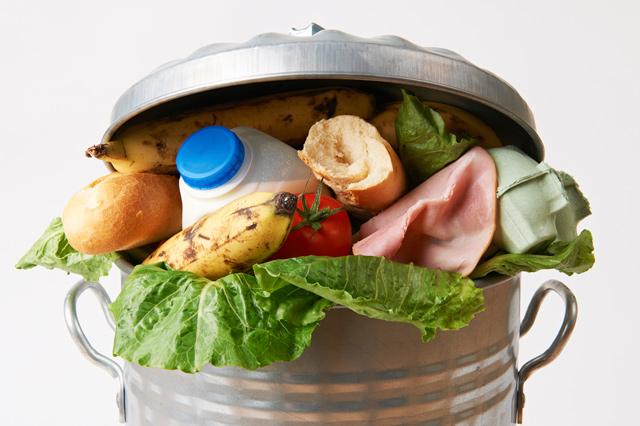You are here
Changing eating patterns key in stopping food waste — Agriculture minister
By Rayya Al Muheisen - Oct 17,2022 - Last updated at Oct 17,2022
AMMAN — In light of the global food security crisis, food waste is a preventable issue that must be addressed to help alleviate the broader challenge, some experts suggest.
“Almost 34 per cent of the food in Jordan goes to waste,” said Minister of Agriculture Khaled Huneifat.
Stopping food waste and changing food consumption habits is a must given the difficulties of this age, Huneifat added.
A total of 2.7 million tonnes of solid municipal waste is produced annually in Jordan, according to the Ministry of Environment’s website.
Half of the total municipal waste collected in Jordan is organic waste, the website added.
“Food waste and food loss have a significant impact on global warming,” Abdallah Al Daoud, Agriculture and environment expert, told The Jordan Times.
Daoud added that when wasted food goes to the landfill, it rots and emits damaging greenhouse gases.
“We are currently witnessing the negative impact of climate change, from droughts, to floods, delay in the rainy season and deadly heat waves,” he said.
Measures should be taken to combat climate change, and “one single action from each individual is enough to slow down climate change’s impact”, according to Daoud.
Food waste is a well known problem in Jordan, which runs particularly rampant during festive occasions like weddings and funerals, he added.
Noticing the severity of this issue, Abu Obaida, a Jordanian, decided to take it upon himself to combat this problem by starting his own food redistribution project.
“I came up with this charitable action to help match people who have nutrition insecurity with people who have surplus food,” Abu Obaida told The Jordan Times.
Abu Obaida neatly packs up uneaten food, which he then transports in large quantities using his truck and distributes the packaged food to underprivileged and food insecure people in the community.
Abu Obaida sources the meals from “clean” surplus food left over at funerals, weddings or even from households. He doesn’t charge for delivery or the cost of packaging, and after distribution, he returns loaned serving plates back to their respective households.
“Most of the people I distribute food to are orphans,” he noted.
“People in need rarely, if ever, eat chicken or meat. Giving a less privileged child a piece of meat would make them happier than giving them a toy,” according to Abu Obaida.
Reconsidering food patterns is necessary to solve this problem, he said.
“We find people who don’t know what to do with the food they have. On the other end of the spectrum, we see people starving, and excited to receive one meal that could keep them full for two days,” Abu Obaida noted.
Abu Jacop, based in Syria, documented his process of transforming leftover food into organic fertiliser on social media.
On his social media account, Abu Jacop made a video demonstrating how to make fertiliser in a very simple way, using ingredients available in every household.
“Mix all leftover food ingredients in a pot, leave it to boil and then put it in the sun to dry,” he said. Wait one month, and the fertiliser is ready to use, and you have made a dent in combating food waste, according to Abu Jacop.
Related Articles
AMMAN — Agriculture Minister Khaled Huneifat on Monday discussed the No Food Waste initiative with UN World Food Programme (WFP) Representat
AMMAN — The annual per capita food waste in Jordan is 101 kilogrammes, approximately 1.136 million tonnes of food squandered each year
ROME — The pesticide exposure, antibiotic resistance, air and water pollution and other factors caused by industrial food production c
















